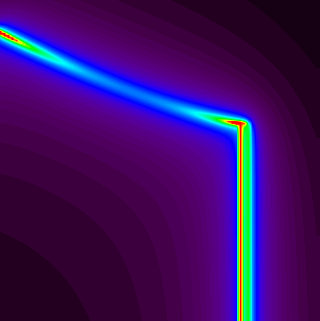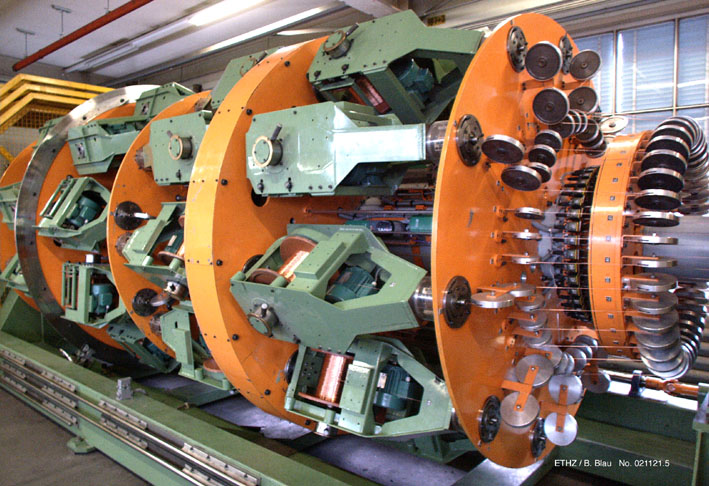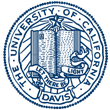UC Davis Physics and Astronomy Department


UC Davis hosted an REU program for summers 2004 through 2025. The program is no longer running.
Introduction
Our NSF-funded Research Experiences for Undergraduates program in the UC Davis Department of Physics and Astronomy will continue in limited form during summer 2025. With the change of administration in Washington D.C., money that we expected to receive now seems unlikely to materialize. We will therefore be doing what we can with a drastically reduced budget, about 14% of what we had planned for. We will host 3-4 funded students for research projects. See below for changes to our usual program. We will focus more strongly than usual on students from community colleges and other schools with essentially no research opportunities.
Research projects form the heart of the 10-week program.
These provide a view of physics very different
from typical coursework. Our program strongly encourages interactions
among participants, for example through field trips and shared housing.
Program Summary
- Research Project- Students can choose from several of the physics and astronomy subfields represented at UC Davis. Each student has a personalized project, which concludes with a 15-minute presentation to the rest of the REU group and other interested department members. (We will probably keep the presentations, but that is not yet certain.) About 30% of the participants co-author journal articles based on their summer work.
-
Housing -
The REU students live together in housing arranged by the program. For the past three years this was in subleased apartments in West Davis; apartment complexes have included Stonegate Village, Arlington Farms, The Grove, Aspen Village, Glacier Point, and Saratoga West. Each apartment had at least two REU students; some also had one or more UC Davis undergraduates who remained in Davis for the summer. Most bedrooms are doubles. We expect a similar arrangement in 2025. We will try to give students the option of private bedrooms, if they are willing to pay the price difference (expected to be about $1500).Bicycles will be provided for easy access to campus.Students who live with the main group will receive an additional allowance for food, much of which is pooled for communal weekday dinners. Teams of two or three students take turns preparing these weekday dinners for the group. For other meals students can choose between making their own food or eating out.We will try to help students find summer sublets and will provide travel advances of about $1500 towards housing and food expenses.
-
Stipend - Students receive a
$700/week$600/week stipend and support towards travel to and from the program.
-
Student/Faculty Interaction -
During the first week of the program, faculty give introductory talks to put the students on a common ground so they can discuss their research. Throughout the summer, weekly gatherings are held, with a faculty mentor present, in which students will discuss their work. The weekly meetings also include learning about career paths of previous REU participants.At least one session is entirely devoted to information on graduate school.
-
Social Programs -
The program usually includes one local and four out-of-town field trips, the latter often on weekends. Trips may have a scientific emphasis, such as touring a national laboratory or industry facility, or may be primarily recreational. See the descriptions of our past REU programs for examples. These trips provide another opportunity to interact with faculty and graduate students in several subfields of physics.
Eligibility
- Students must be U.S. citizens or permanent residents to receive funding from our main grant from the U.S. National Science Foundation. We can accommodate non-citizens if they do not need financial support, or if we are able to find other means to support them. This may depend on the specific research group. We will try to find ways to enable all selected students to attend.
- Students must have finished high school by summer 2025 but must not have completed a B.S., B.A., or equivalent degree in Physics or a related field.
- College students from two-year or four-year institutions may apply. All participants must be continuing their college education in Fall 2025.
- Strong preference is given to students who have completed at least one year of calculus-based introductory physics.
- Although there is some flexibility in dates, we normally ask that students be able to attend the program for at least 9 weeks, through August 15. If your college schedule requires you to leave before then, you may want to consider REU programs that better fit your availability.
Timeline
- All applications completed on or before February 14 will be reviewed before any offers are made. "Complete" means that at least two letters and a transcript have been received, in addition to the student's response to the application questions. Leave your recommenders adequate time to submit their letters! Our initial offers will be made on Monday, March 3. We continue to review applications as they are completed, until all positions are filled. However, we strongly advise students to submit all materials by the end of February, when all the positions are still open. (Technically all the positions will be open at 11 PM on March 2, but many of the mentors will have made their first-round selections by then. In the flurry to get offers out on March 3, we may not even look at such a late-arriving application until another day or two has gone by.)
-
Offers are sent by email. We will use the common offer date of Monday,
March 3, 2025 for most of our first-round offers, although a few may
be made later.
Students will have one week to respond, andWe will have flexible response deadlines, so that students will not have to give up an opportunity to attend a more complete REU program. Additional offers will be made as we hear back from students. Each offer is for a specific project. The proposed faculty mentor will discuss the details with the applicant.
- Once the program is full, usually in early April but occasionally several weeks earlier or later, we notify (by email) all students with complete applications. If you need to know the status of your application before then, feel free to ask us about it at any time.
